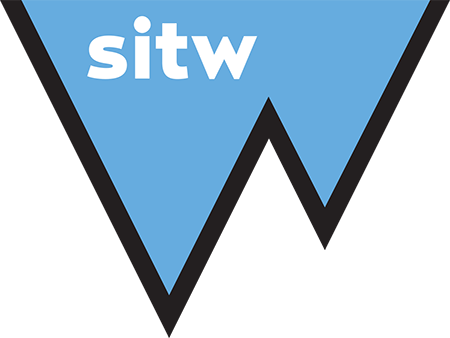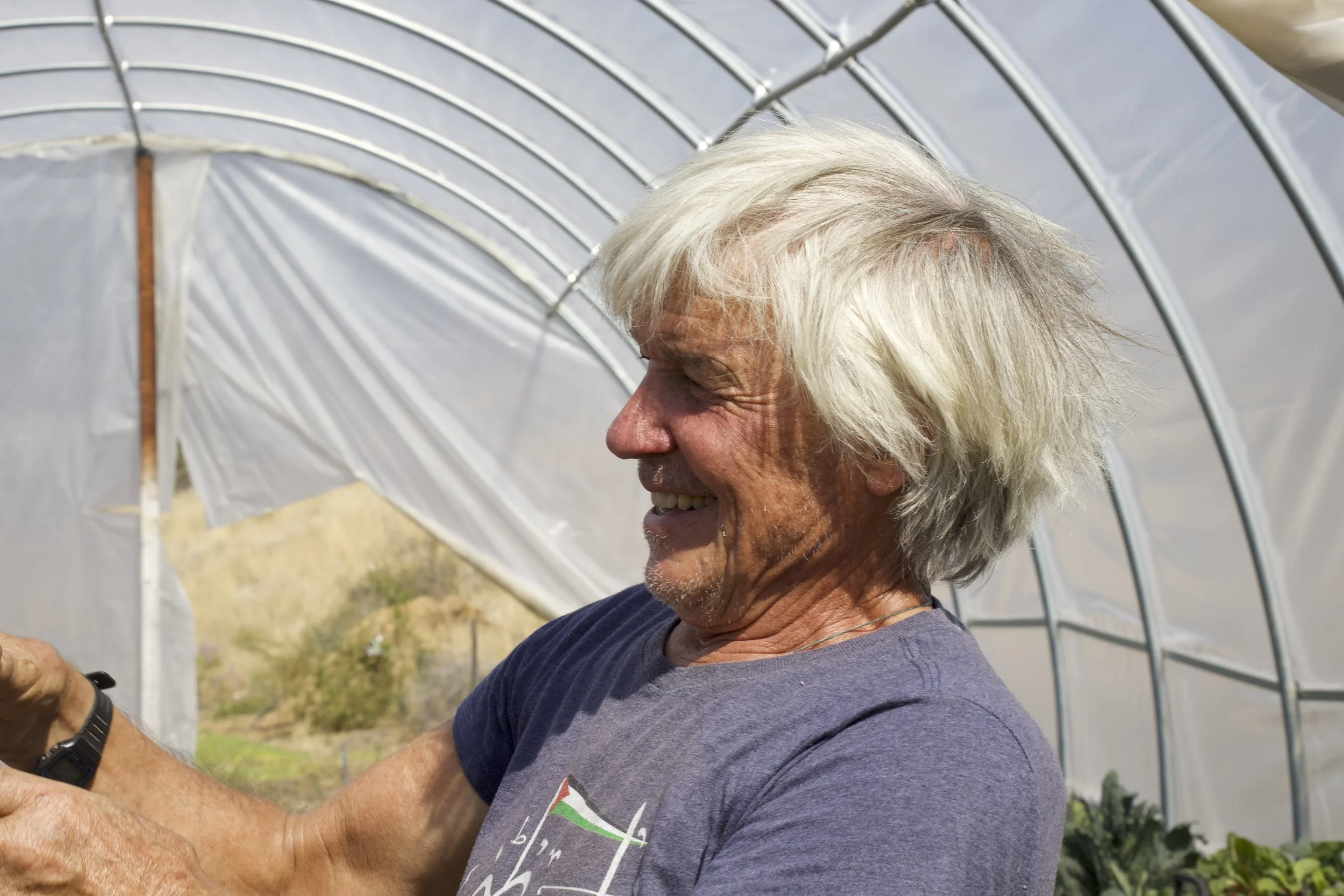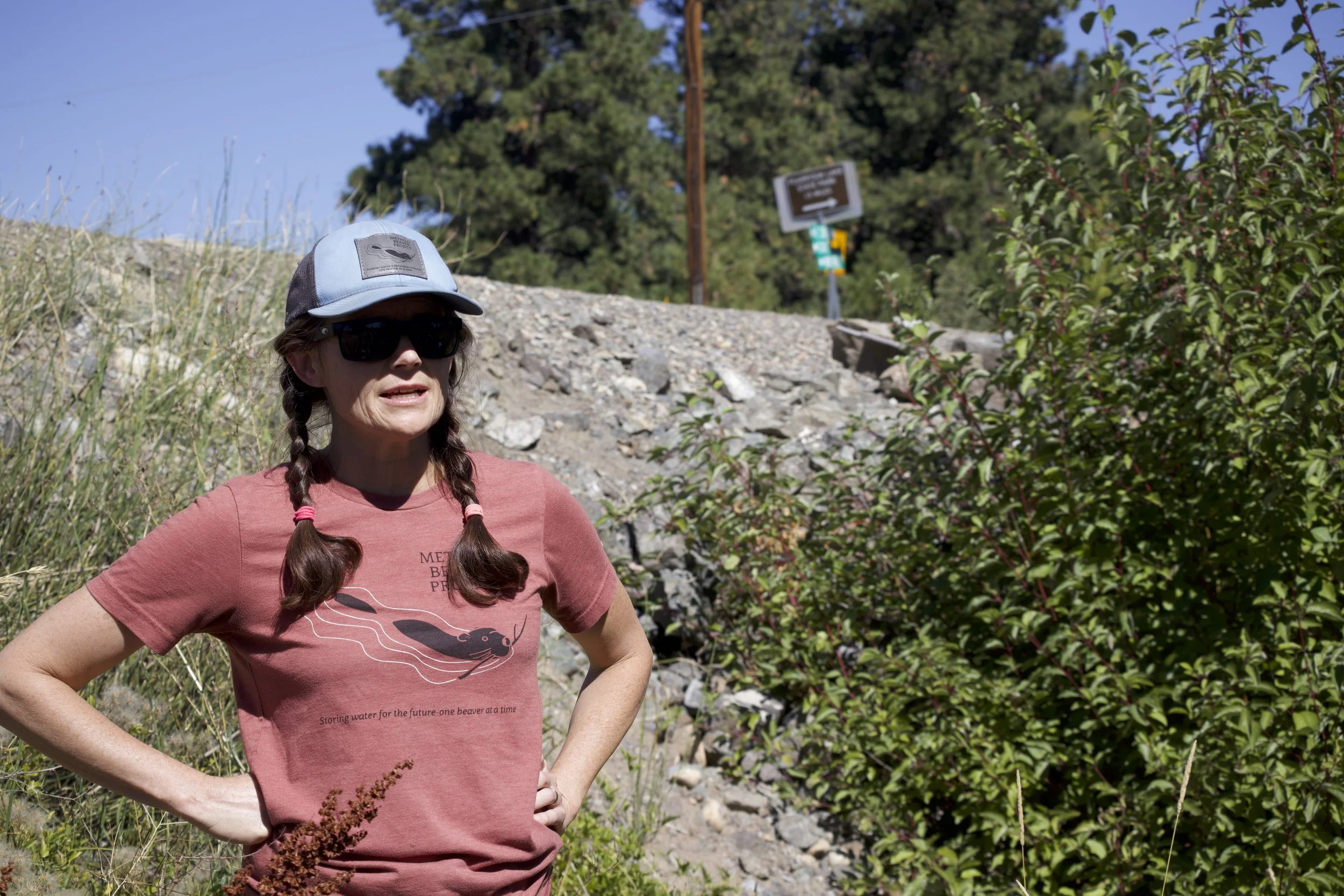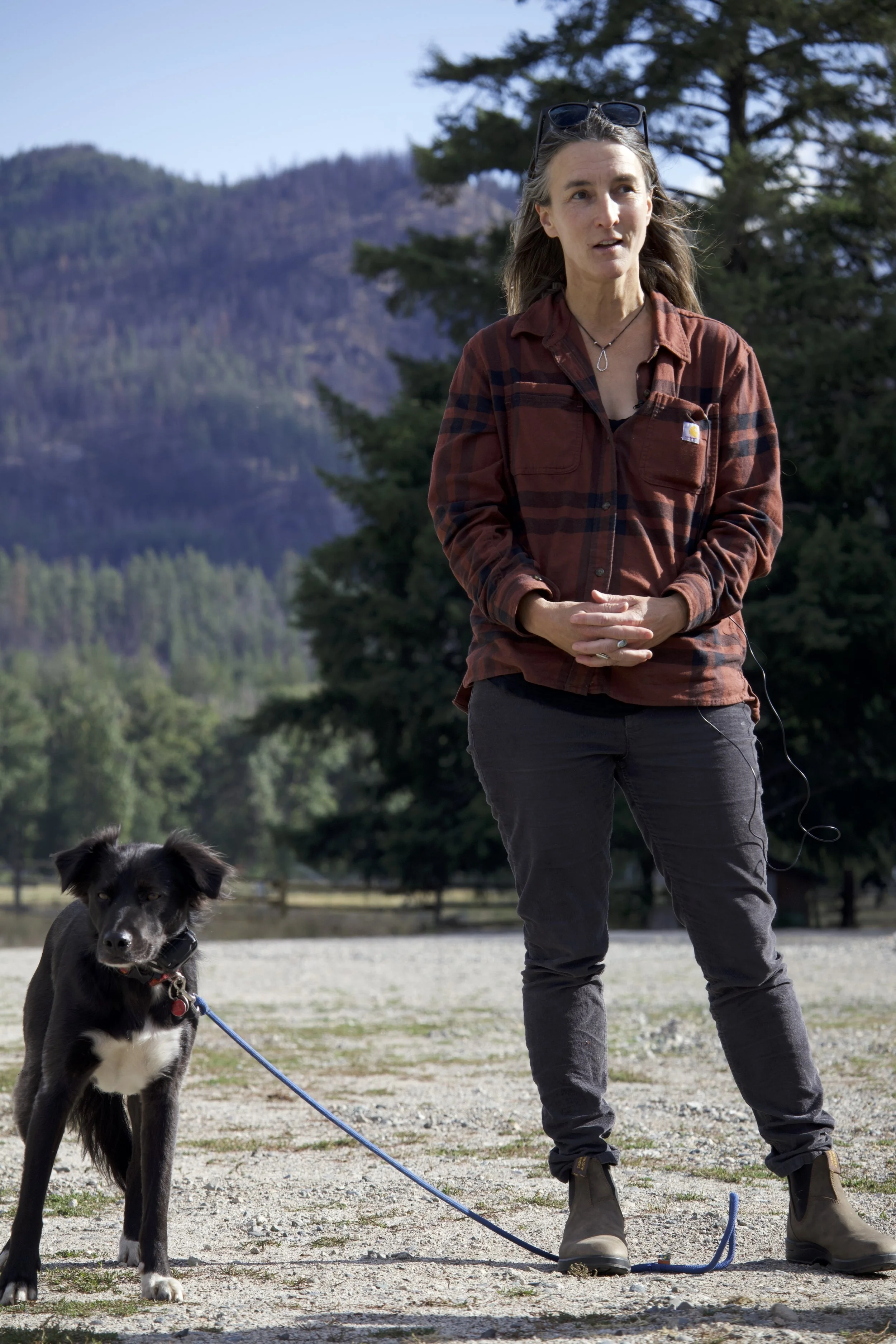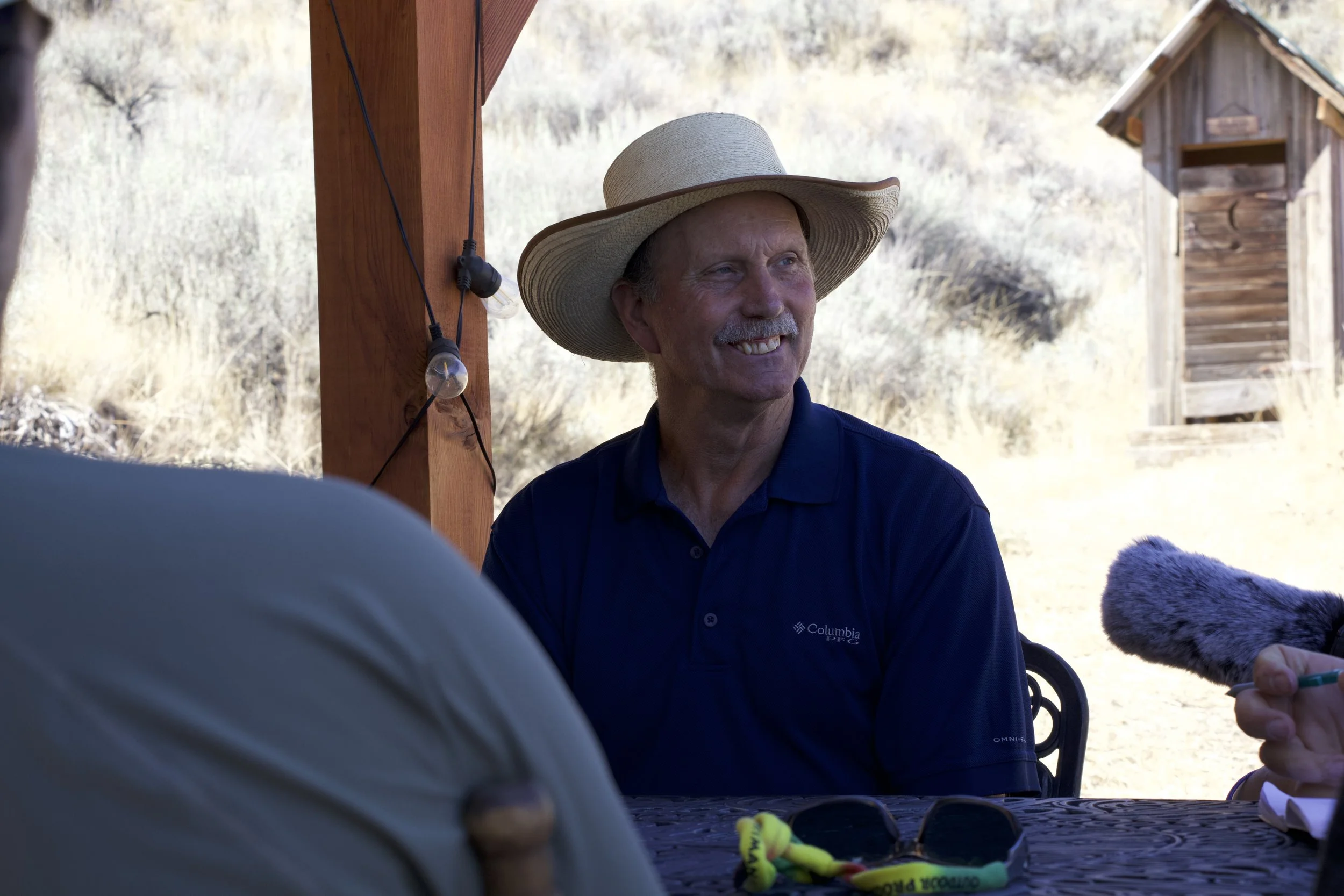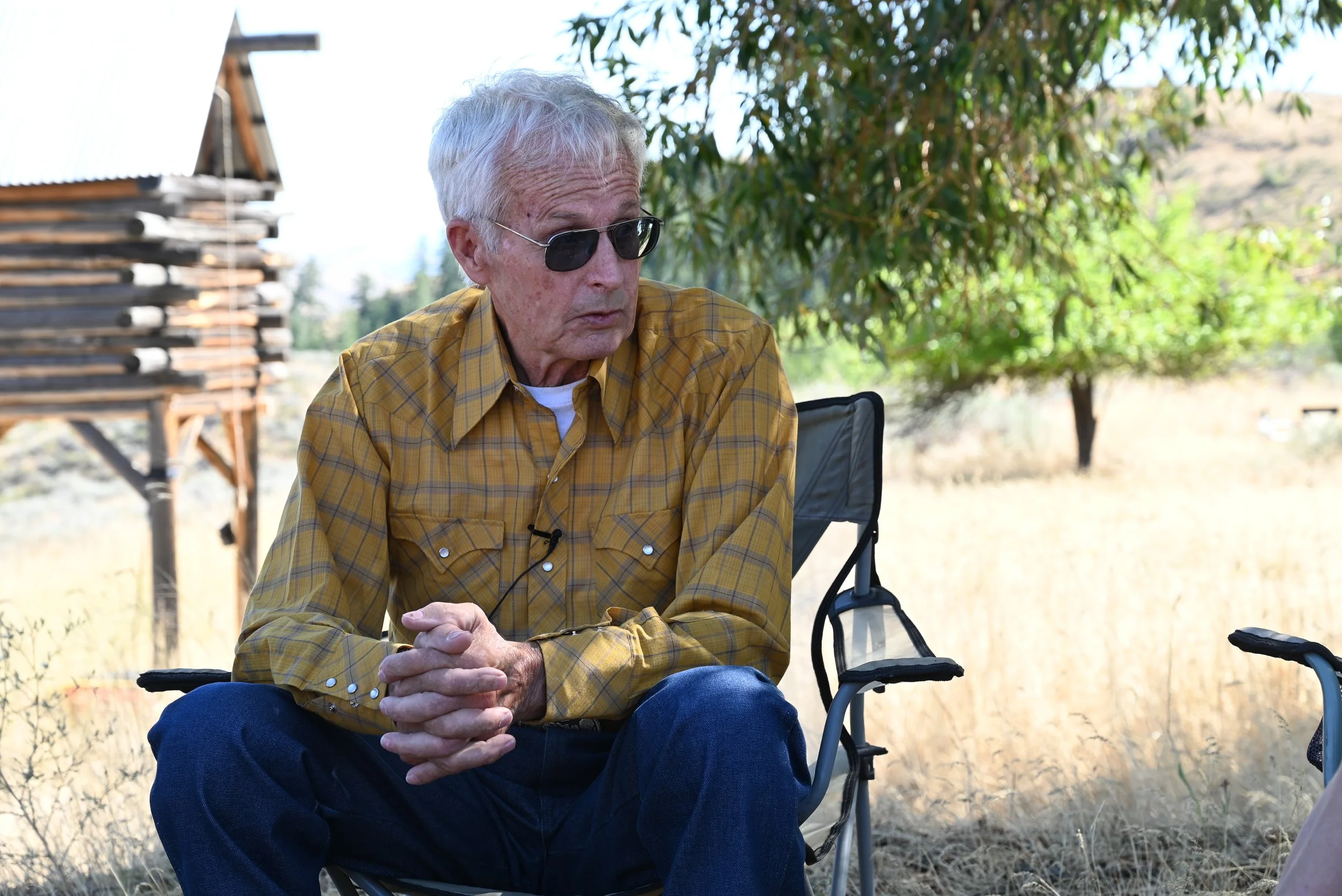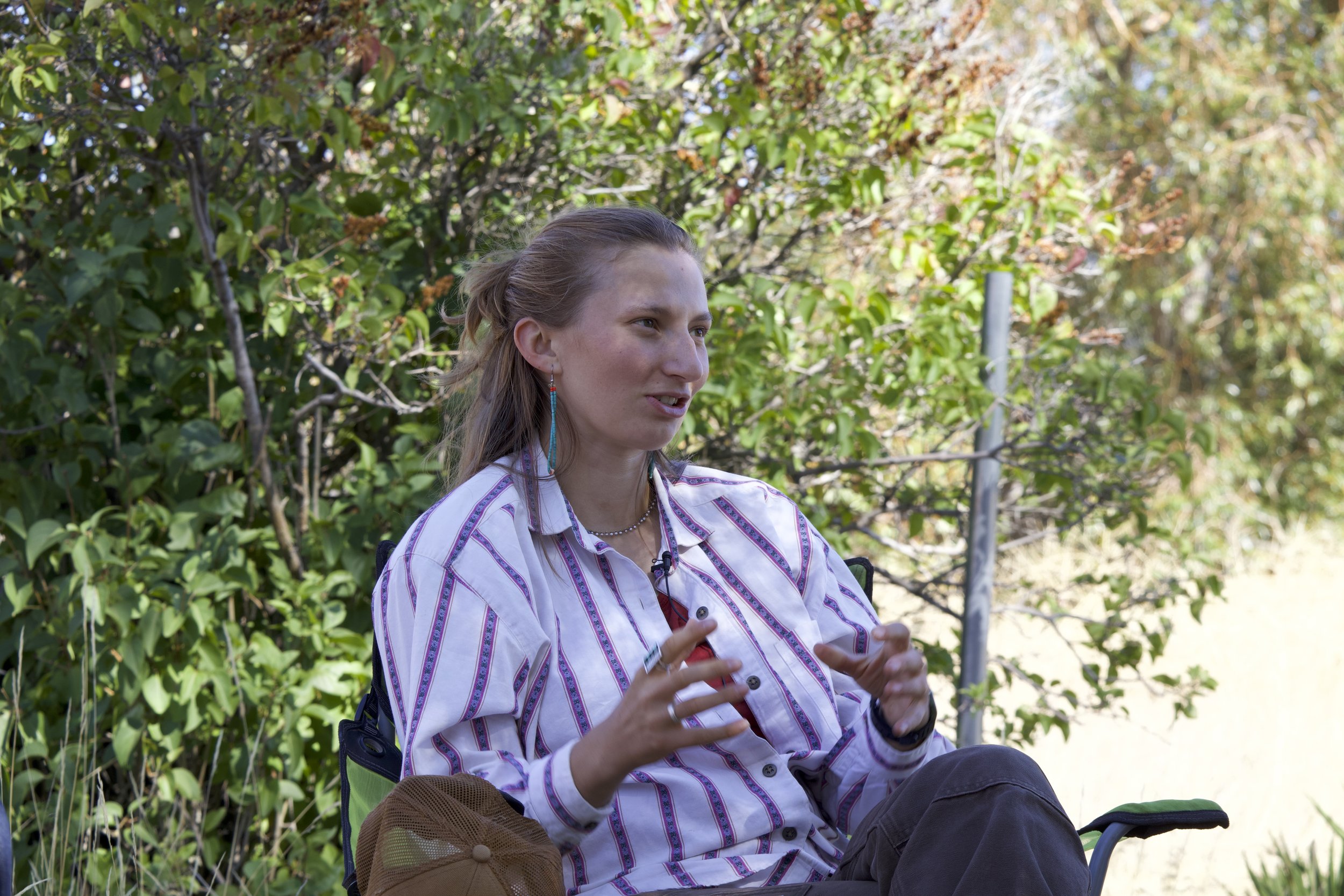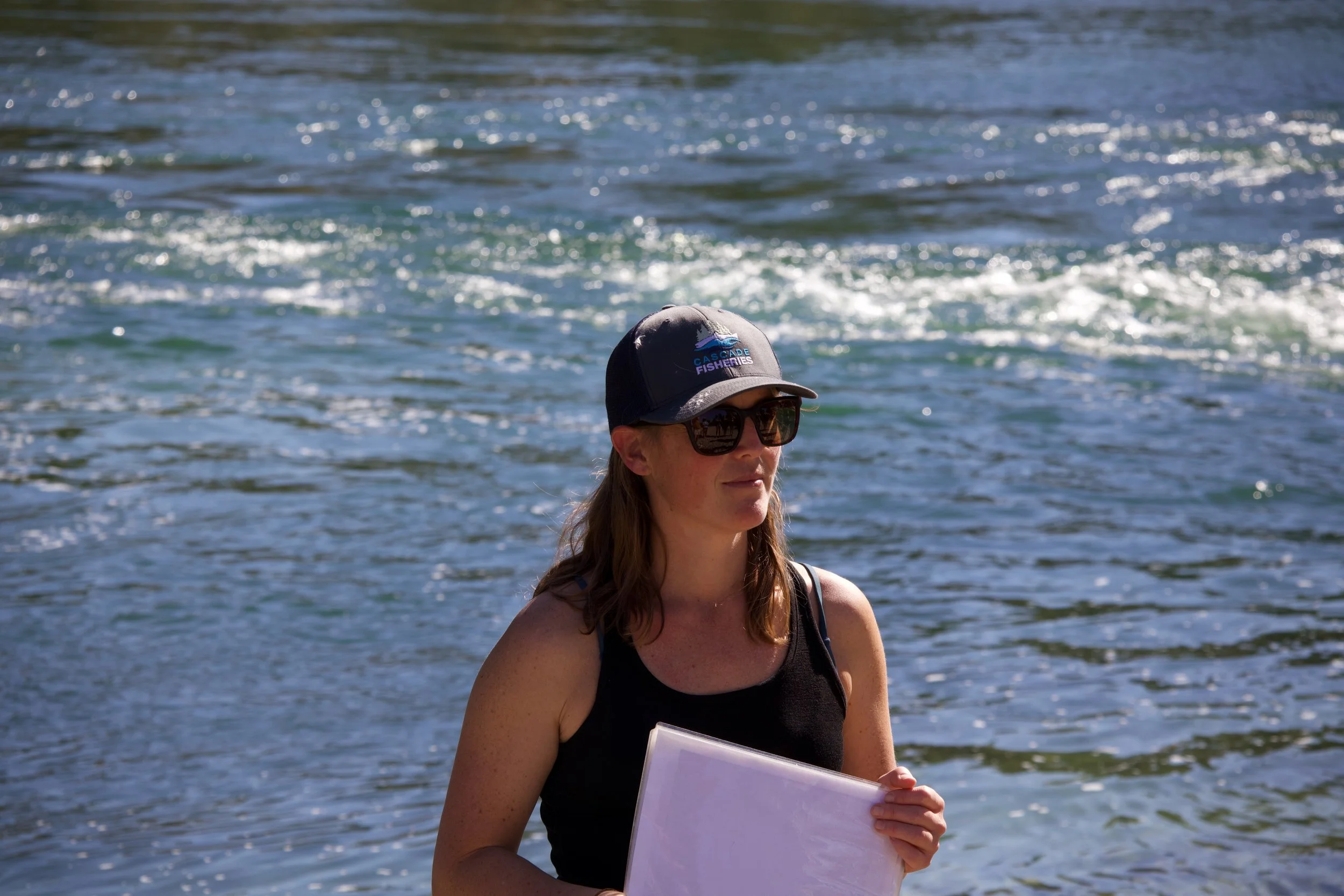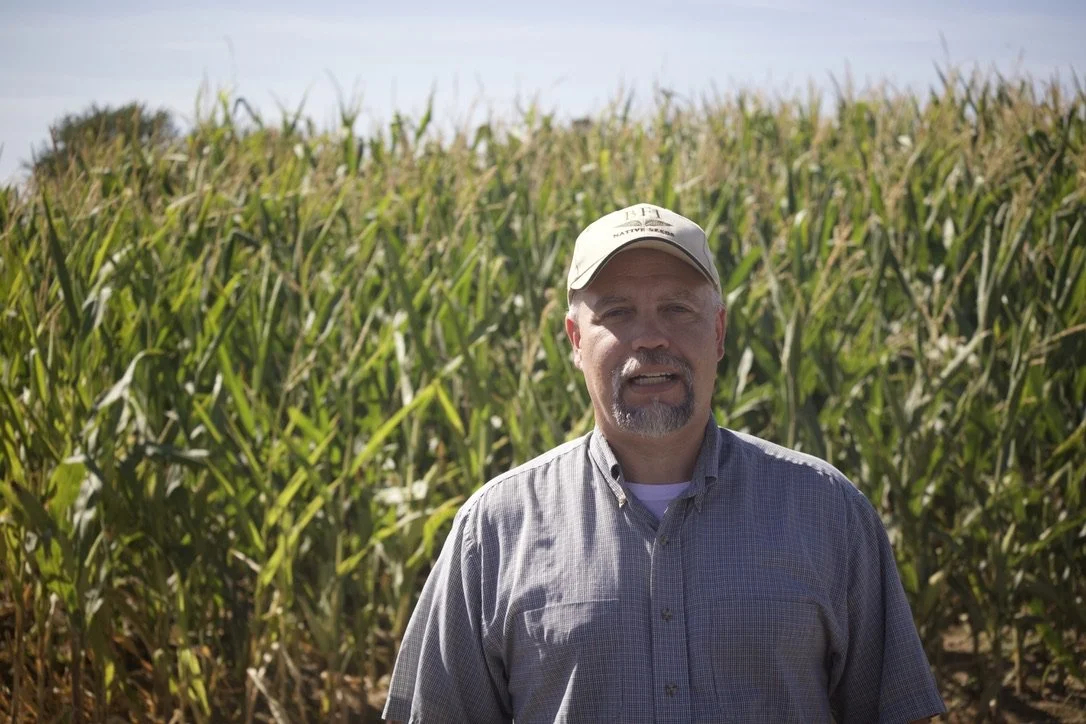Dana Visalli
Citizen Scientist, Gardener
Methow Valley
September 1, 2024
Nestled among alfalfa, wheat, and fruit farms in the heart of the Methow Valley, Dana Visalli lives a life deeply connected to nature. Upon our arrival, he warmly greeted us from his porch. Through his cabin's large windows, we saw shelves lined with endless books and plants. Dana immediately began sharing his lifestyle with enthusiasm. He lives on a few acres, with an outdoor composting toilet, solar panels, and a large garden.
As he spoke, our conversation naturally flowed between topics. A point on natural history might lead to the blooming cycles of his front yard plants, while a discussion on ecology might shift to his favorite flower, the Rocky Mountain bee plant. His garden, where he grows beets, tomatoes, eggplants, carrots, strawberries, lettuce, and more, is central to his life. He sells his produce to a local health food store and welcomes community members weekly to pick up their fruits and vegetables directly from his farm, taking pride in showing them where their food comes from.
Soon, all 21 of our students were exploring his property with butterfly nets, examining plants under microscopes, and searching for critters in the creek. From our time with him, it was clear that Dana’s extensive knowledge comes from his passions and avid habit of reading. His commitment to sustainability and thoughtful approach to global systems were evident. Dana’s enthusiasm for close observation and learning underscores his dedication to understanding the natural world and encourages reflection on the sustainability of our society.
by Cambria Bartlett
